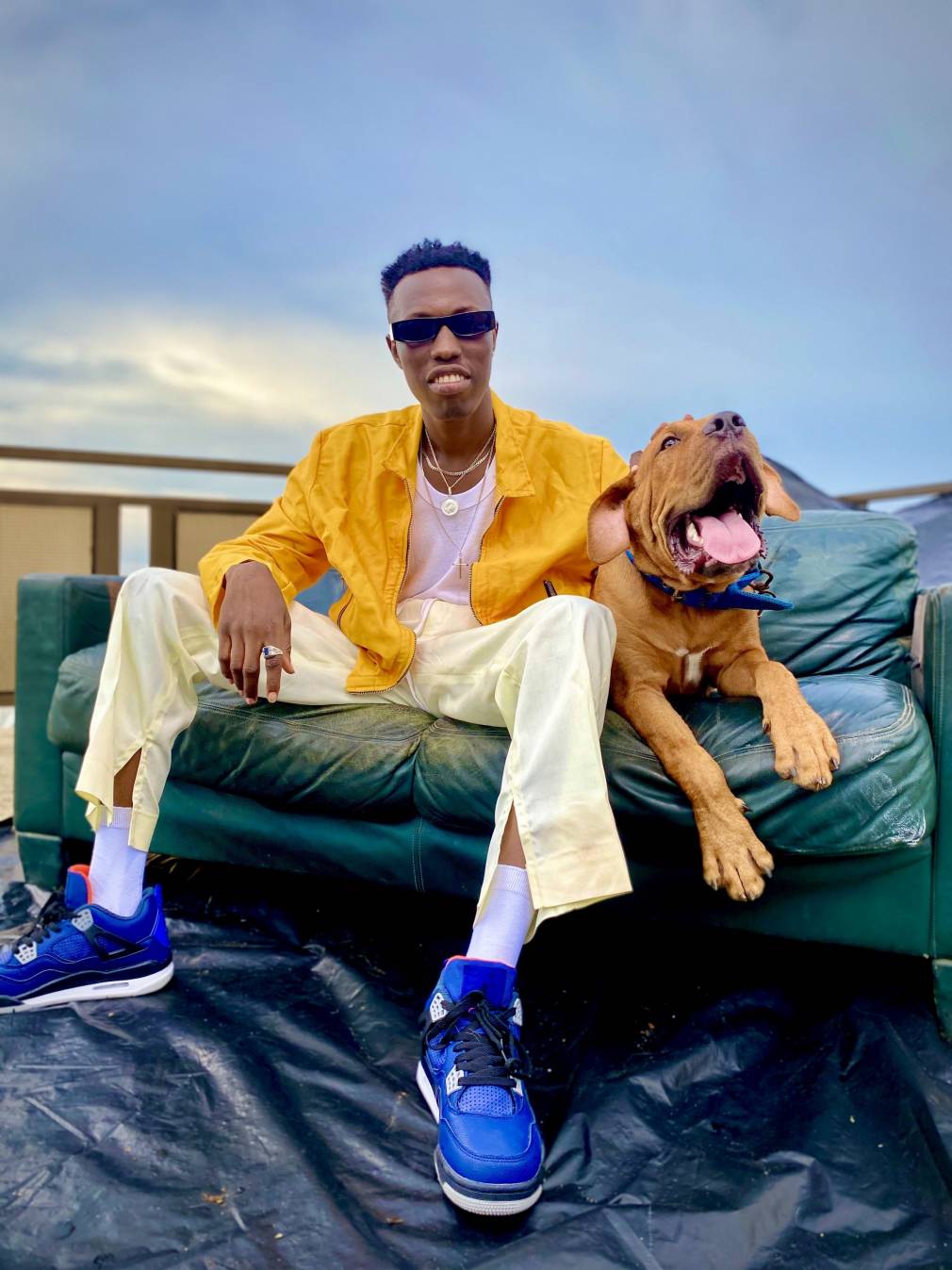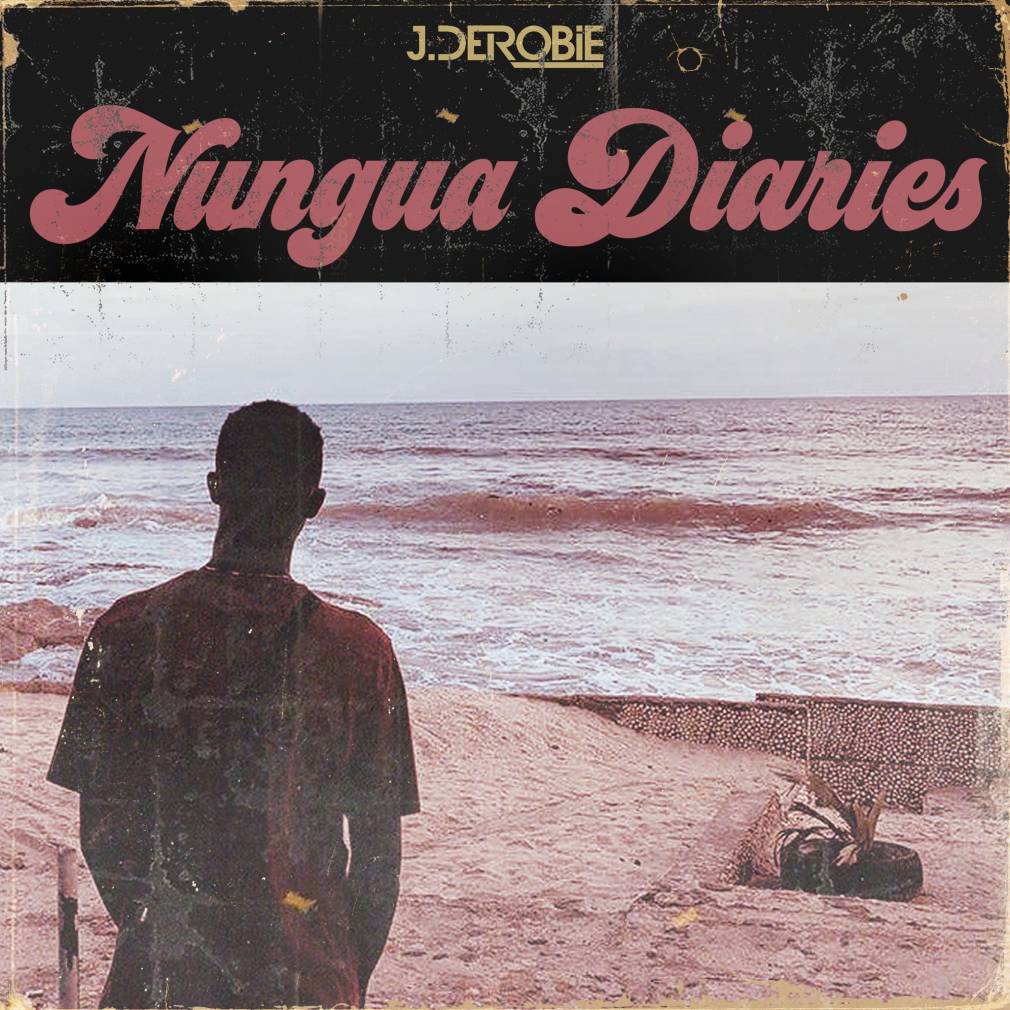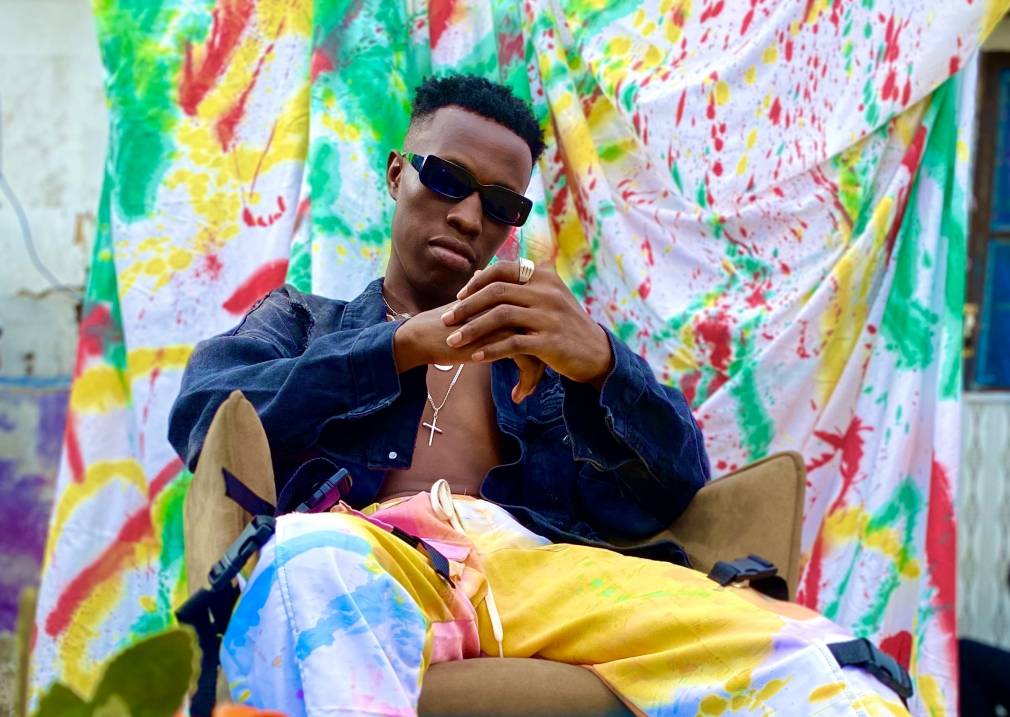J.Derobie doesn’t have much to say about his childhood: “I grew up in Nungua [a coastal town located in the East of Accra]. It was normal, average Ghanaian. Life was normal. Everything was normal”. But music quickly disrupted the young Derick’s life: “I heard a woman singing in my house and I loved the way she sang”, he remembers. “I started looking into music and I started singing. And whenever I used to sing, people were like “oh you sing really well!” In Nungua, the young man was at the crossroads of multiple musical cultures and listened to everything young Ghanaians listen to: afrobeats, highlife, hiplife… “and Dancehall when I started high school”, he adds. Mixing all these influences, he released two afrobeats songs, a dancehall track and freestyle demo of the yet to be recorded,“Poverty”. The freestyle caught the attention of Mr Eazi’s newly formed talent incubator emPawa Africa and chose him to be part of the initiative’s inaugural artist call out emPawa 100. The original track, released in January 2019 via emPawa, stands today with over 3 million streams and had a strong impact on the Ghanaian public. The young singer gained international exposure, professional management, thousands of followers and a remix alongside Jamaican superstar Popcaan; the icing on the cake.
A natural link
Over the last 20 years, dancehall has been flourishing in Ghana bringing artists international fame. “We believe most of the people taken to Jamaica on slave ships were from Ghana”, Derobie explains. “We have like a natural connection. Ghanaians naturally love reggae and dancehall music”. If the pioneers of the Ghanaian version (General Marcus, Samini, Shatta Wale, Stonebwoy) were inspired directly from the sounds of the Caribbean, a new generation of Ghanaian artists are now taking the Ghanaian Dancehall singers as their primary models. This has created a peculiar situation where some of the top Ghana hits are often sang in Jamaican Patois, a creole language we almost never hear in the Ghanaian public space. These same hits are sometimes sung and listened to by individuals who have never set a foot in Jamaica. “I started listening to the big dancehall acts in Ghana, while also listening to afrobeats and all that”, says Derobie. “But then I wanted more, so I started listening to the Jamaicans themselves. I started watching the lyrics when I listened to the songs, especially Chronixx. That’s how I learnt Patois. And then I realised that I could also do it”. As a emerging Ghanaian artist, what is the advantage of singing in Patois when Ghana already has about eighty languages? “I just love how it sounds, it’s like a mystery”, the singer laughs. “And now, the youth really understands it. You can’t just sing anything to people. When you say something, the youth will come after you like yo, what are you saying? And that makes it easier for the music to flourish”. However, it would be way too reductive to say that dancehall is a pure import in Ghana. Local artists have created a hybrid sound and culture that also finds its sources locally. The first limit of this cultural exchange is the spirituality. “I do dancehall music but I’m not a Rastafarian”, J claims. “But I love rastas, my stepdad happened to be one”. The second limit is the sound. “Over here, what we do is we mix the afro with it. We then call it afro-dancehall. In the afro-dancehall, you would hear African rhythmic sounds, African bouncing and all that. You can also add local languages to let the local people feel you”.

emPawa
Mr Eazi is also playing an increasingly engaged role in the African music scene with his program emPawa Africa, with which Derobie has been collaborating for more than a year now. In his own words, “Empawa is an initiative for emerging artists to come to the limelight. It helps with distribution, publishing, marketing, music advice … It helps individuals transform into artists”. After his spontaneous application, the young Derick managed to get a spot in the 2018-2019 Empawa Top 10. Alongside 9 other singers from the continent, he went to South Africa for a 3-week masterclass hosted by renowned artists like Diplo, Guilty Beatz and Raye. EmPawa is in line with J.Derobie’s ambitions for his country: “I will also bring something in the near future when I become big”, he claims. “Because there are so many talented artists down here who don’t get the support and the things they need to come out”. Before taking music seriously, the young singer was actually a volunteer in Accra’s Madina Local Council, but he realized quickly that music has a greater power: “with the music, I can make good things happen to people, change more lives, and touch more lives”. The ability to touch lives and to tell stories that people can relate to is the unique quality of J.Derobie’s music. His upcoming EP, rightly titled “Nungua Diaries”, is full of precise and intimate themes such as love, struggle, challenges, new friends, companionship… “When I was growing up, I realized storytelling is one of the best things to do in music. That’s what makes the song interesting”, the singer tells me. “I get my inspiration from real life events, from a story about a friend, or sometimes I just create a story in my mind.” Is there anything peculiar about the stories happening in Nungua? Derobie takes a pause before answering: “it depends. For instance, the “Poverty” track, I wrote it here in Nungua. The thought came to me when I was at the beach. I was sitting on rocks, watching the sea, just imagining how my life would be and how other people are also struggling around me. So sometimes it is specific”. But with his increasing celebrity, the artist’s life and environment is probably going to change. When asked if the stories he tells will also be different, he answers mysteriously: “The story is always going to change… but it will also stay the same”.
A normal guy
Some things are already expanding in the singer’s life: “my WhatsApp chat used to be around 18 new messages. Now it’s like 300 and something!” he laughs. It is a theme he addresses on “Fake friend”, a track that sums up his relationship with his newly acquired celebrity. Even though the first lyrics are “me no really like attention”, he confirms that he is enjoying the new attention his music is getting. “But I don’t really like having too many friends”, he adds. “What I know is that too many friends lead to trouble and bad things. I have new friends now, I love people, but I don’t have a lot of people who are super close, who know me in and out”. It is likely that Derobie feels more comfortable in the streets, with normal guys from his generation than in the spotlight of show business. That was probably the motivation behind his song “My People”, that he dedicates to all the boys from the Accra neighbourhoods: “my Nungua boys, Madina boys, Sakumono, Spintex, Ashaiman Boys…”. “They have given me support, they have showed me love, and I really appreciate that they are doing that”, he explains affectively. “After I became popular, people have really been showing me the love I wanted. That was why I did that song”. The song quickly became an anthem for the neighbourhood boys who would like to see the singer as the next “Ghana Dancehall King”. Does he consider himself a future leader for the youth? “Yes, already”, he answers firmly. “That is my duty too”.





